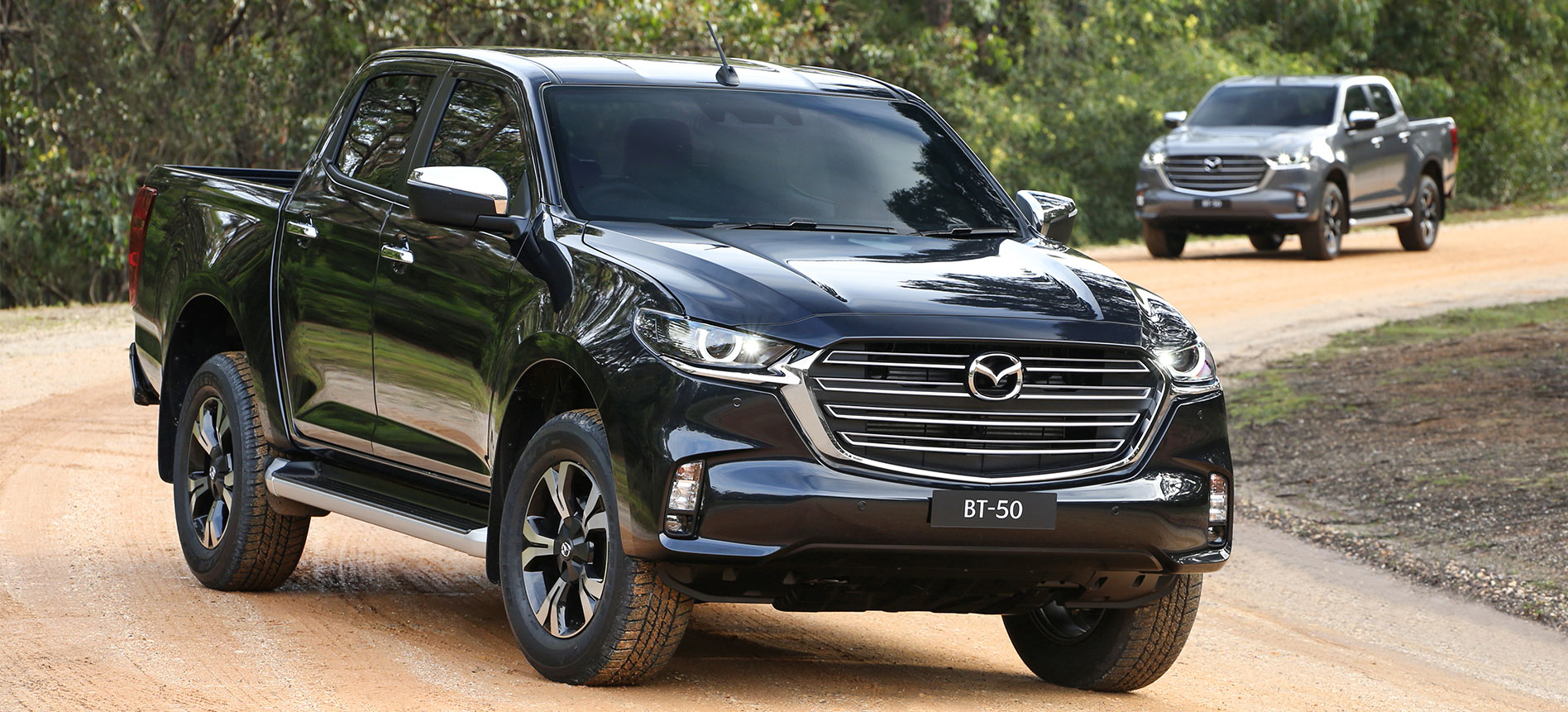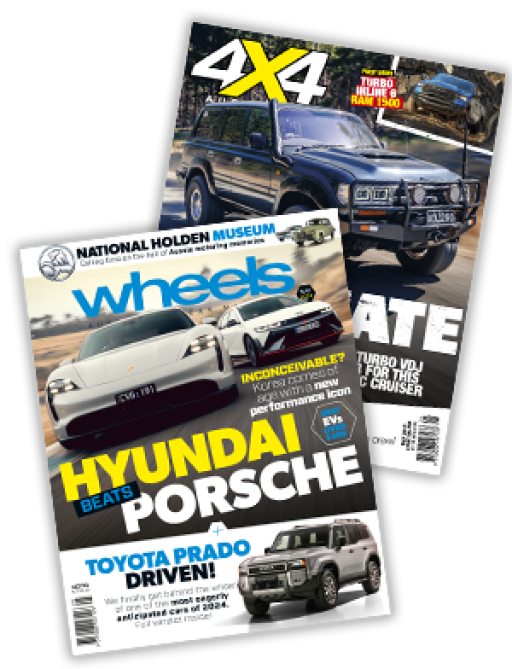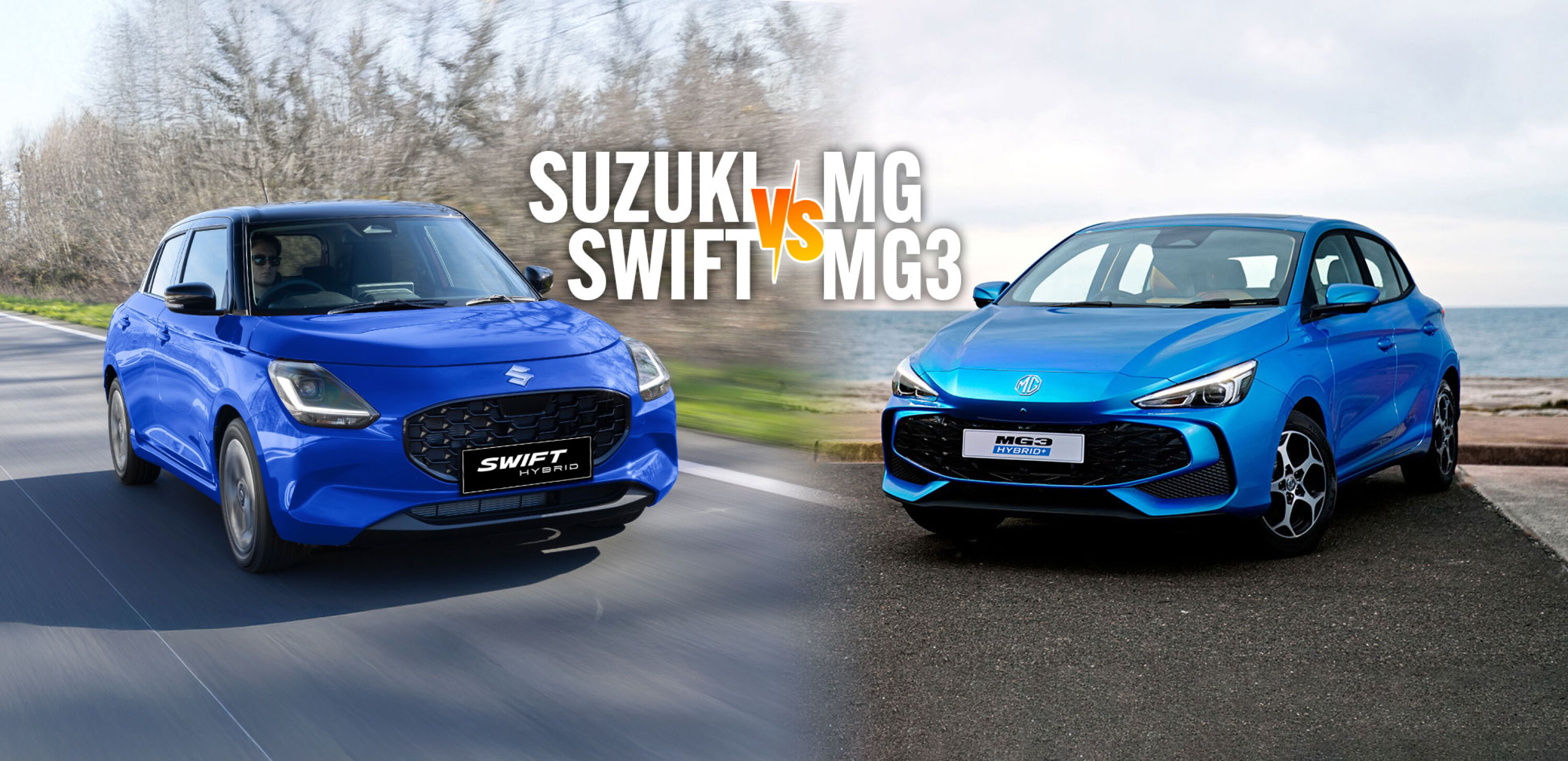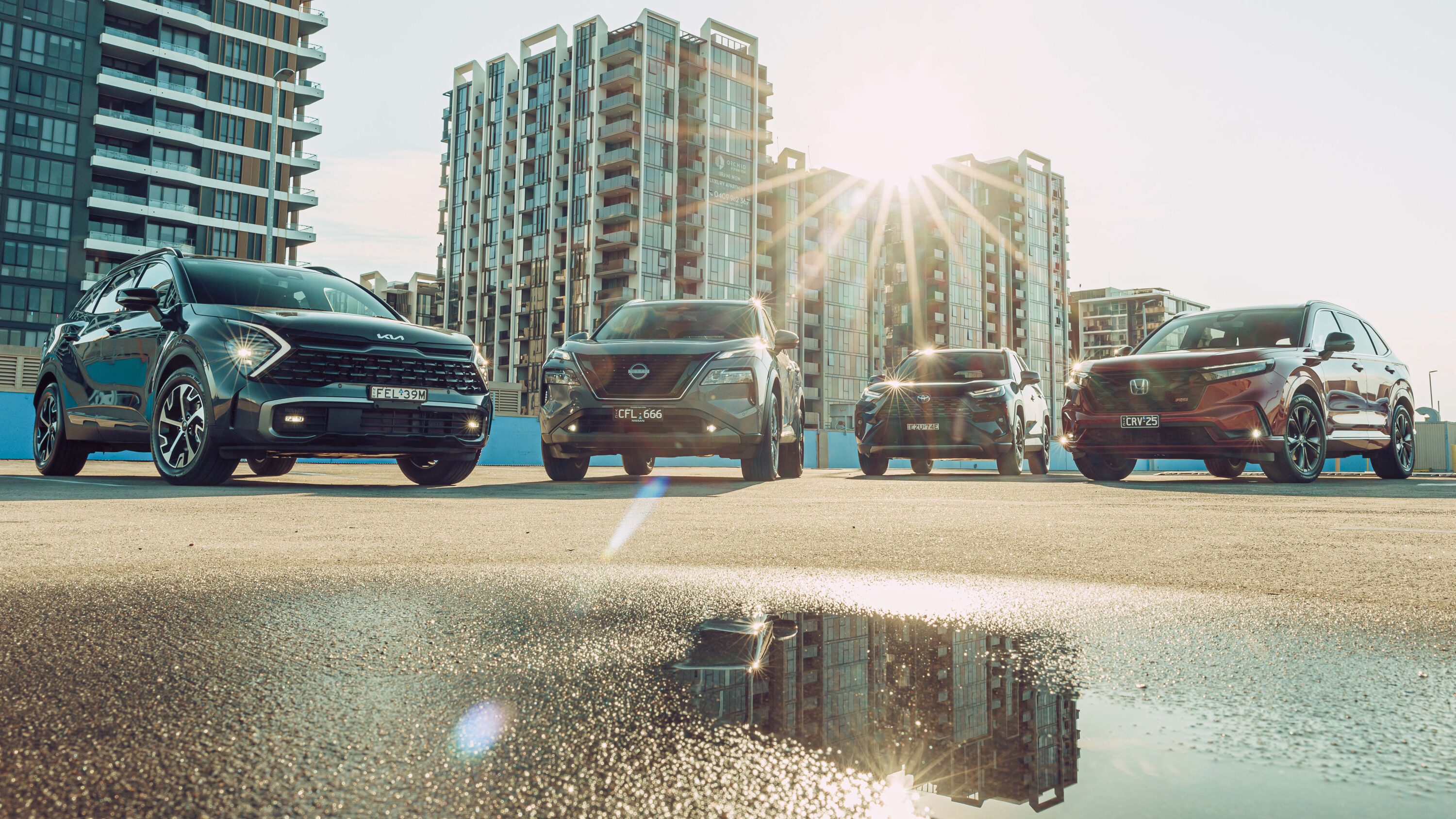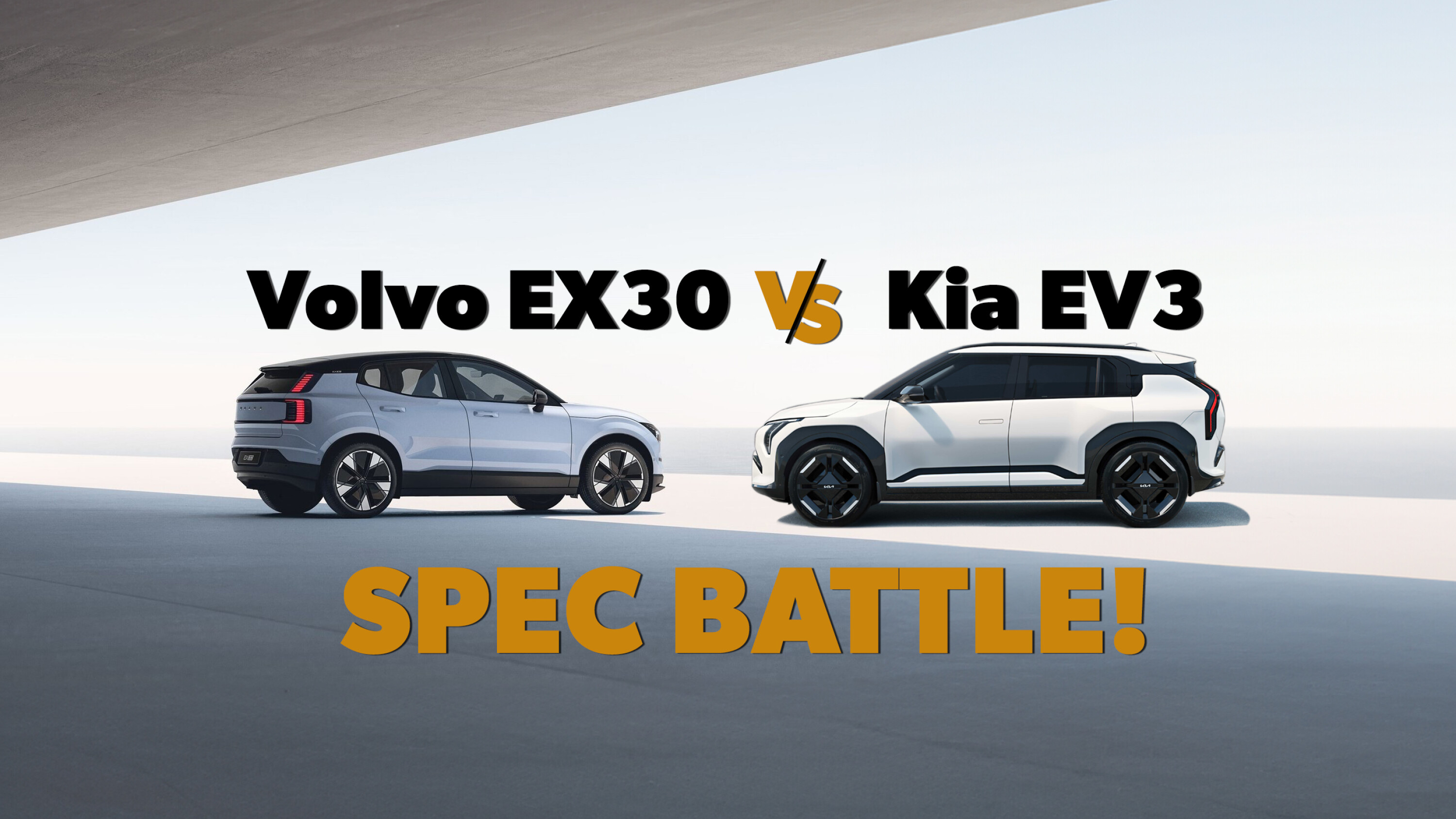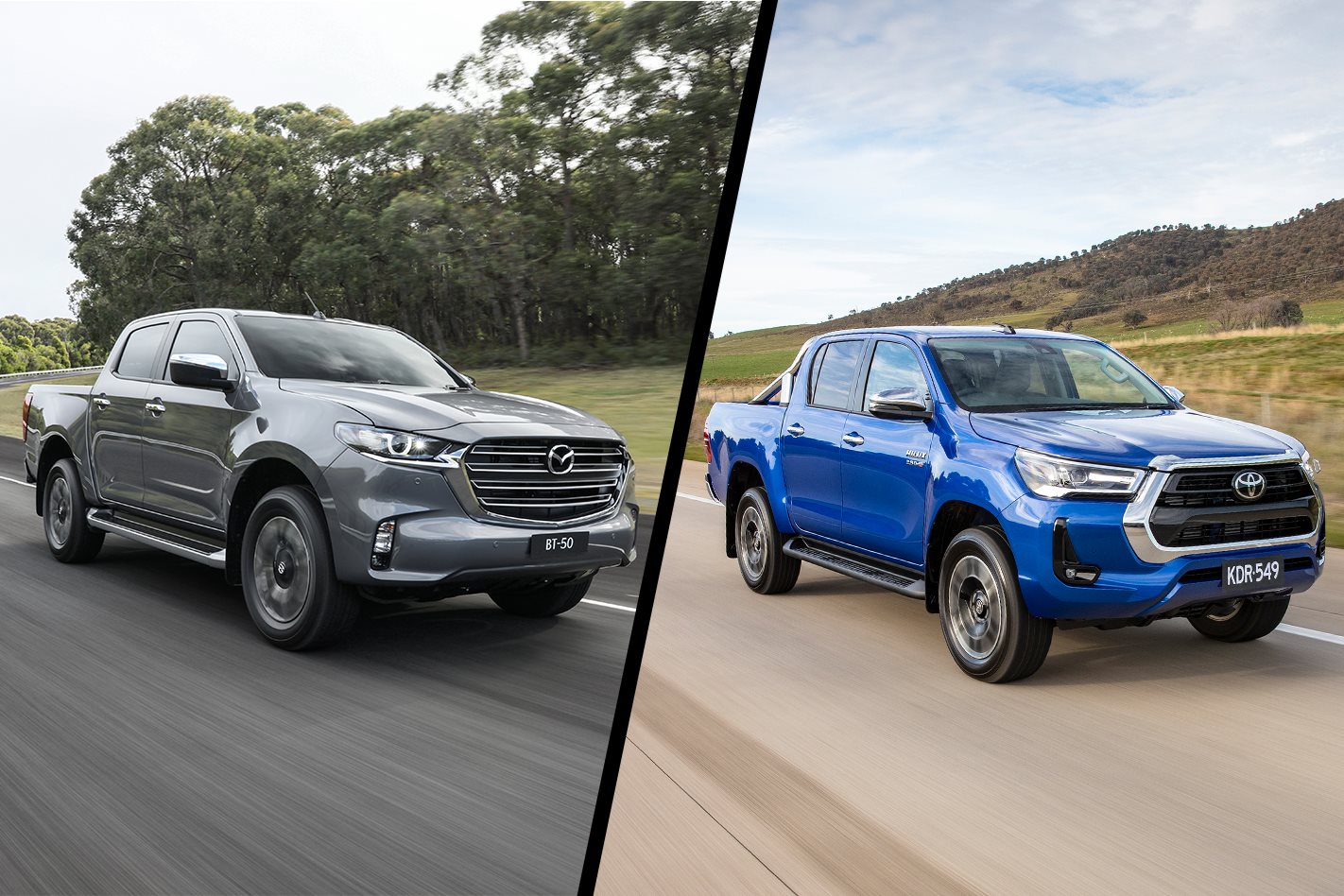
If you were ever looking for an opportunity to get into a new ute, both the Australian government and the automotive sector are combining to offer a compelling proposition in 2020.
There’s no doubt that many are feeling the pinch with the enduring pandemic – but the endless flow of new utes making their debut in 2020, combined with extra government stimuli, could be enough for you to take the plunge and head into the dealerships – or more likely order online.
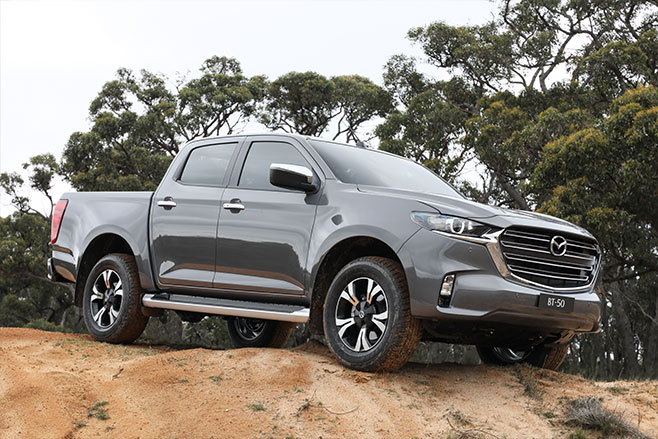
The instant asset write off scheme continues to allow taxable income deductions of up to $150,000 for business-related purchases, luring ABN buyers into helping along the economy.
Two such new utes that are catching the attention of buyers are the newly-facelifted 2021 Toyota Hilux and the all-new Mazda BT-50.
For interested parties standing at the crossroads between the two, let’s iron out the on-paper specifications and decipher which is the more appealing option.
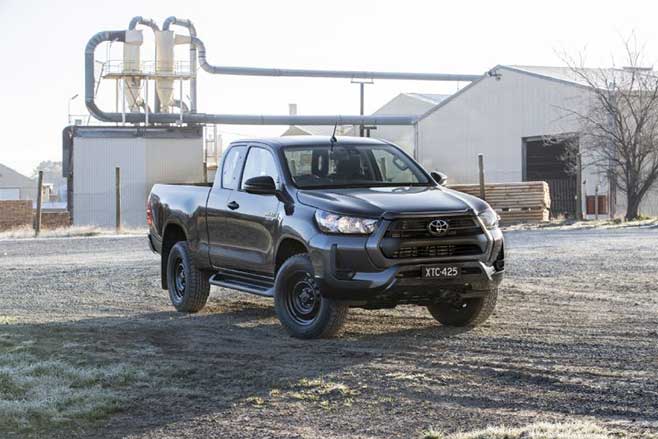
Engines/Drivetrain
Of the two, the new Mazda BT-50 has endured the greatest change. Switching over to the new Isuzu D-Max platform from the ageing T6 Ford Ranger has allowed Mazda to bring the BT-50 into the here-and-now with a vastly updated engine and drivetrain.
The Mazda BT-50 is now fitted with a 3.0-litre turbo-diesel four-cylinder engine that produces 140kW and 450Nm sending it to the wheels via a six-speed transmission.
The range remains dual-cab only at this stage, but is offered in both 4×2 and 4×4 specification.
Keen-eyed readers will notice those figures are lower than those of the outgoing BT-50, which used a 3.2-litre five-cylinder turbo-diesel engine with 147kW/470Nm.
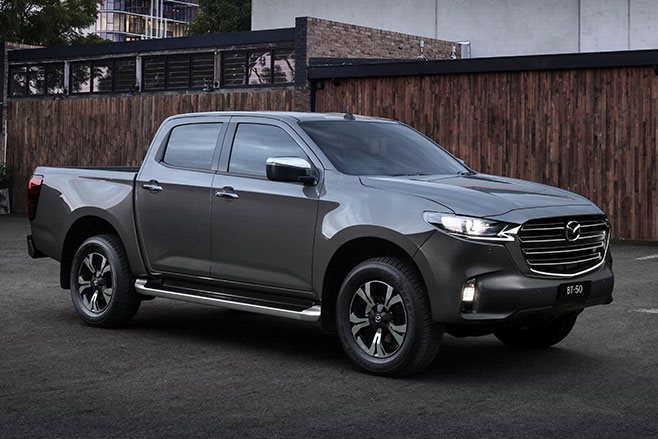
However, Mazda reckons that not only is the new car quicker thanks to reduced weight, but it’ll also retain its 3500kg towing capacity.
As well, with the smaller engine, Mazda says fuel consumption is expected to drop to a claimed 7.7 litres per 100km on the combined fuel economy cycle.
Meanwhile, the Hilux receives a tweaked version of its existing 2.8-litre fou-cylinder turbo diesel engine for the 2021 model year. On raw numbers, its 150kW/500Nm outputs give it a decent edge over the BT-50.
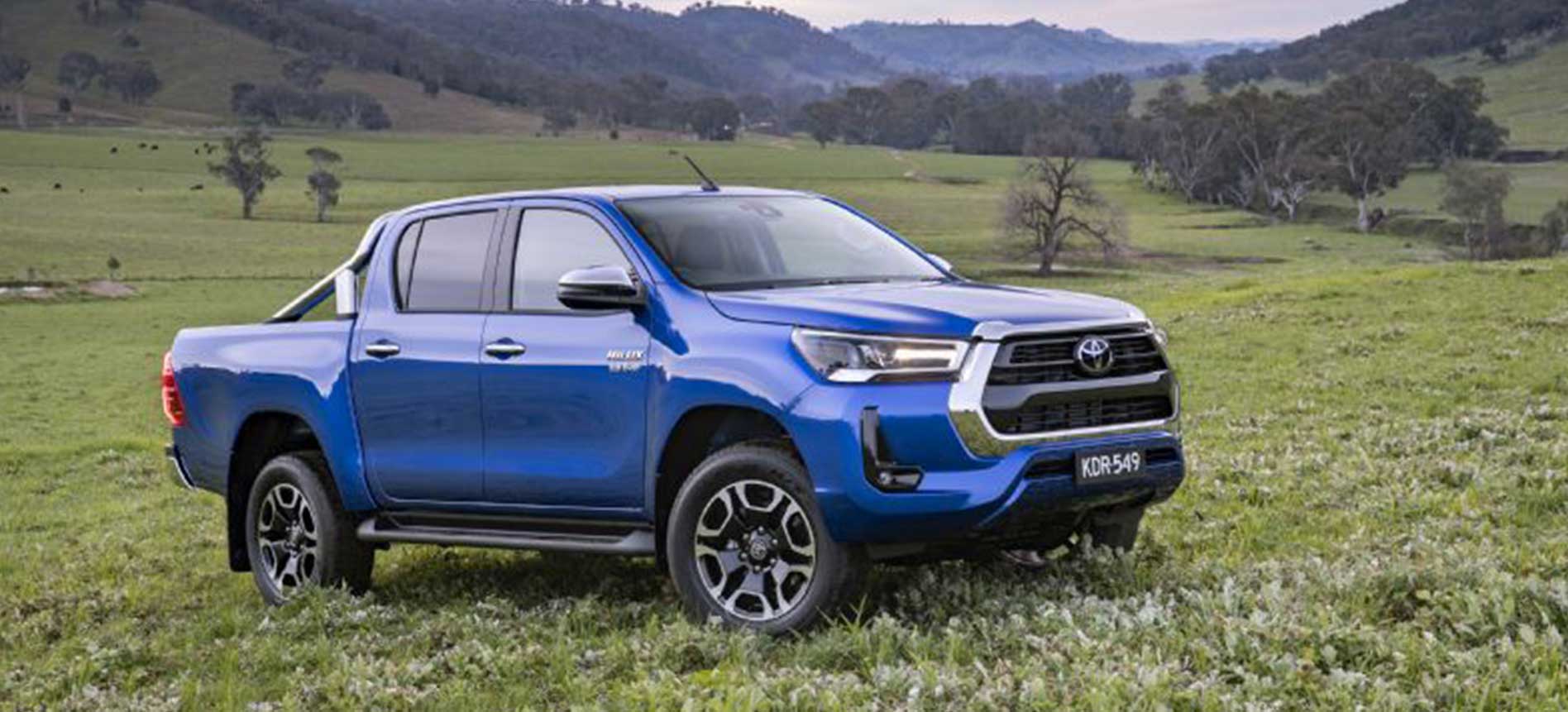
Toyota reckons its updates to the powertrain have permanently fixed the troublesome diesel particulate filter issues that have plagued the HiLux, and have even resulted in a class action against Toyota in Australian courts.
Platform/Technology
Although they wear different faces, much of the Mazda BT-50’s underpinnings are the same as the Isuzu D-Max’s.
That means a ladder-frame chassis, a six-speed manual or automatic transmission and, as with the D-Max, hill-descent control and a rear diff lock to make off-roading that little bit easier.
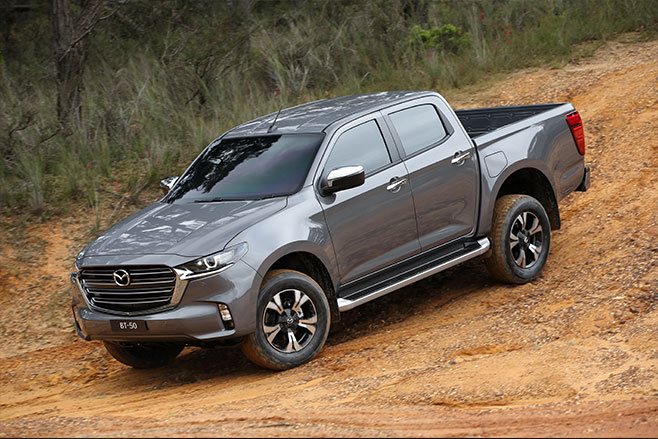
Towing capacity for the BT-50 remains at 3500kg with a braked trailer, while the payload limit tops out at 1000kg.
Notably, Mazda isn’t selling the BT-50 with a space-cab bodystyle, nor a single-cab variant, until 2021.
The 2020 Hilux gets substantial suspension changes, with updates applied to shocks, new bushings and an improved leaf spring rear-suspension set up.
A variable-flow pump has also been fitted to the hydraulically-assisted steering.
Toyota has made these changes to improve the Hilux’s low-speed and unladen ride quality, as well as to improve its low-speed behaviour around town.
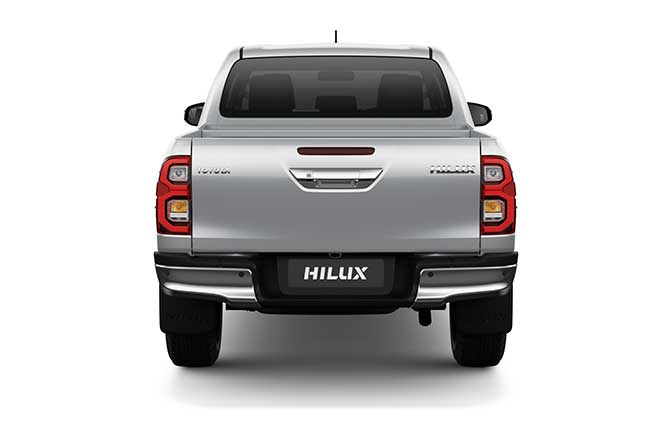
The suspension and power steering changes have been made while maintaining the load-carrying capacity and ability, which has always been a strong point for the model.
Toyota has fitted an additional traction control function to 4×4 Hilux models equipped with downhill-assist control, which reroutes torque in 2WD mode to provide more grip.
Towing
Both these utes have the ability to tow on-par with the wider range of light-commercial utes in the space.
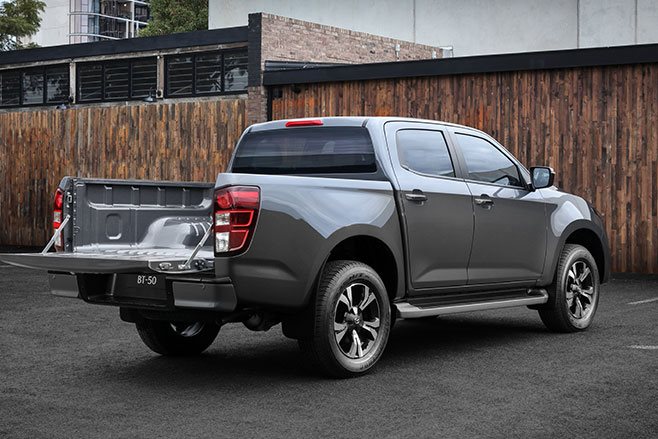
The BT-50 will be able to tow with the best of them at 3500kg, while Toyota says the automatic-equipped 4×4 Hilux will now be able to match it and haul the same 3500kg, which is a notable 400kg improvement on the previous generation.
Interior/Technology
Drastic changes continue to the interior of the new Mazda BT-50, presenting a much more technologically-focused cabin than before with some premium materials thrown into the mix as well.
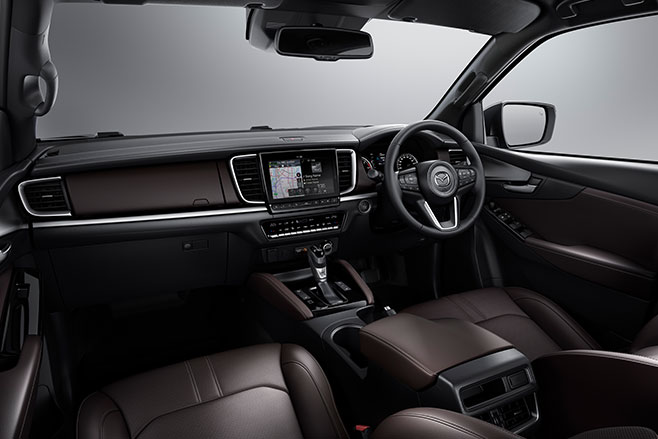
Highlights include a 7.0- or 9.0-inch colour touchscreen that supports Android Auto/Apple CarPlay smartphone mirroring, digital radio, speakers built into the roof, a digital display within the instrument cluster, remote engine start and a vastly-improved subset of safety features.
In more detail, new safety items including autonomous emergency braking (AEB), blind-spot monitoring, rear cross-traffic alert and reversing camera, lane departure warning and high beam assist are all standard across the range.
Adaptive cruise control is standard for the automatic versions.
There’s less going on with the Hilux, but additions include an 8.0-inch touchscreen (with knob audio controls rather than buttons) with smartphone mirroring for Android Auto and Apple CarPlay, while safety inclusions such as active cruise control, lane keep assist and pedestrian detection continue on with this update.
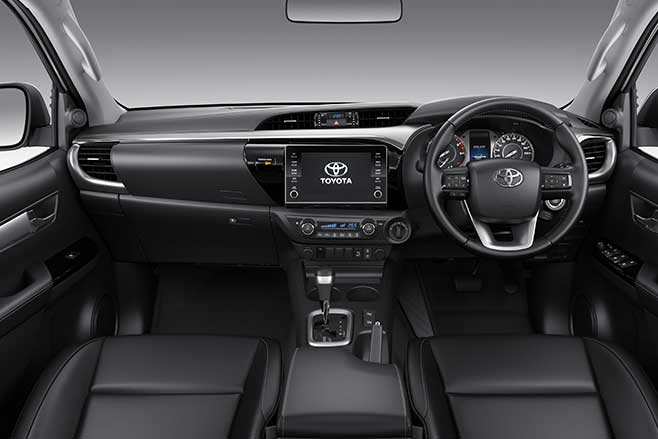
It’s hard to tell which will be a more effective mobile office without spending time behind the wheel of both models, but the improvements for the BT-50 are promising and the equipment included as standard is generous.
Exterior/Design
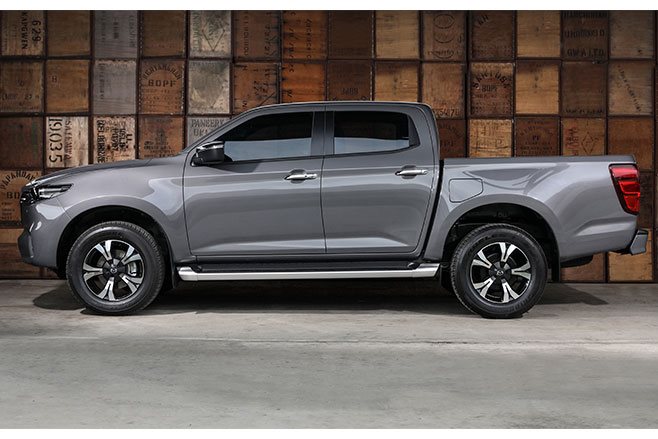
New LED headlights flank a redesigned large front grille, and extends down the sides of the ute, characterised by a high crease line. Two-tone wheel designs are a sharp added touch as well.
There’s far less to get excited about with the Hilux, where the Japanese maker has opted for a light nip-and-tuck in place of a full facelift.
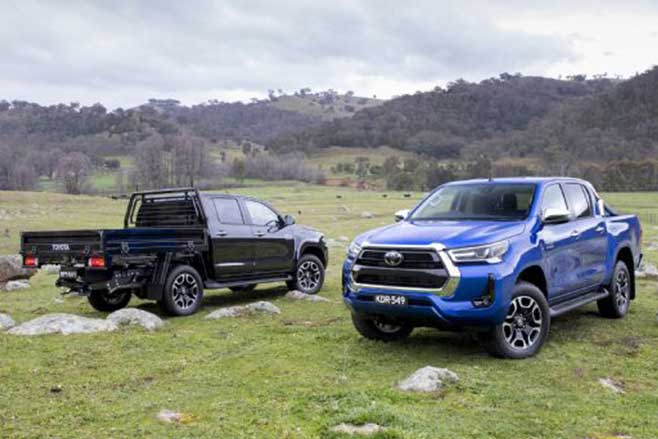
It does get a slightly larger grille, new headlights and taillights as well as some new wheels, bringing it closer to the looks of the Tacoma pick up that’s available in the United States.
Pricing
Quoted pricing doesn’t quite match up like-for-like between the new Mazda BT-50 and Toyota Hilux due to the BT-50’s missing range variants – but here’s an idea.
Comparing the most popular 4×4 variants, the new Mazda BT-50 pricing kicks off at $49,360 (before on-road costs) for an entry-level 4×4 cab-chassis manual ute, before stretching up to $59,990 for the range-topper BT-50 GT 4×4 pickup.
Comparing apples with apples, Toyota’s Hilux 4×4 range starts at $47,290 for the Workmate 2.4TD automatic, though a fairer comparison positions the Hilux slightly cheaper than the BT-50 with the comparable SR 2.8TD 4×4 cab-chassis manual priced at $48,510 (before ORCs).
The range then extends to the $62,420 SR5+ range hero and beyond for special editions.
It depends which way you look at it, but Toyota offers the more affordable option for lower-spec models and Mazda takes out the value award at the top end.
Conclusion
Looking purely at specs, the Mazda BT-50 presents a much stronger case to fight the rest of the ute market than it has previously.
A strong reliable engine, a raft of tech updates and some premium-looking interior appointments has us wondering if it could be one of the next sales front-runners, though we’ll have to wait for a first meeting in person and some extended seat time to see whether there’s any truth in that.
